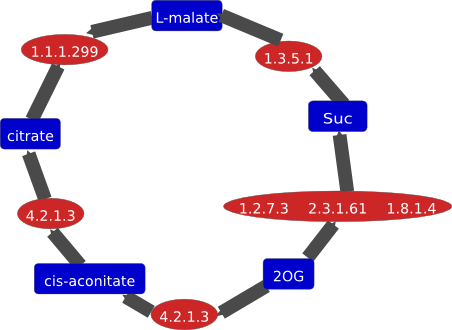    1.1.1.37 1.1.1.37 | phosphoprotein |
PknD, one of the eleven eukaryotic-like serine/threonine protein kinases (STPKs) of Mycobacterium tuberculosis, phosphorylates the NAD+-dependent malate dehydrogenase, MDH. PknD phosphorylated the dimeric MDH in vitro. The phosphorylation site is identified on threonine residues and the phosphorylation inhibits the MDH activity, while the presence of the autophosphorylated PknD has no effect by itself on the oxidation of NADH. In vitro, the recombinant MDH can also be phosphorylated by at least five other STPKs, PknA, PknE, PknH, PknJ, and PknG. MDH is hyperphosphorylated in the bacteria at the beginning of the stationary and under oxygen-limited conditions by STPKs other than PknD. On the contrary, when PknD-deficient mutant mycobacteria are grown in a phosphate-depleted medium, MDH is not detectably phosphorylated. Although the MDH is a substrate of several mycobacterial STPKs, the activity of these kinases can depend on the environment, PknD is a key element in the MDH phosphorylation assay under phosphate-poor conditions |
-, 741234 |





